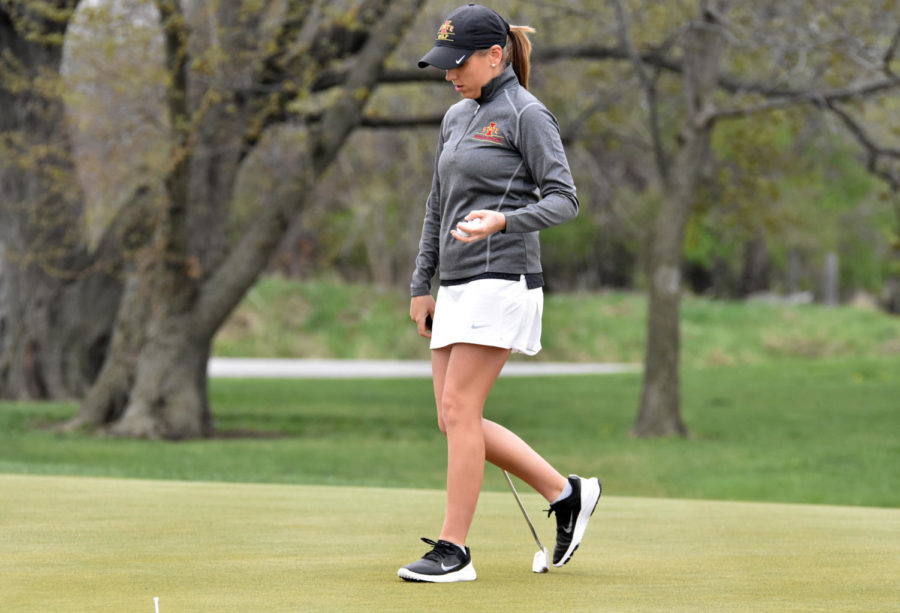Tyrrell: Past month in Iowa serves as a reminder of the work left to be done
Iowa State junior Celia Barquin warms up during practice.
September 20, 2018
With the horrific death of yet another young woman in Iowa, the country is left scrambling for answers.
We know why Mollie Tibbetts, Celia Barquin Arozamena and so many other young women were killed: they were in the way of a man who viewed them as inferior, or who simply had the “urge to rape and kill a woman.” So the question we are left trying to answer is this: How do we prevent more deaths?
The answer is not in telling women to do something more, something differently or something better. Although it’s important that women take actions to be smart and protect themselves, we cannot put the impetus for this change on the victims.
But defiant posts on the internet declaring men simply need to “stop killing women” aren’t going to do it either. It seems to me the type of man who would read something like that and think “yeah, this applies to me” isn’t going to hold back on his violent, misogynistic impulses because a stranger on the internet told him to. No, the cultural shift we need is going to happen with our generation and mostly in the way we raise our kids.
The fact is most men, like most women, are good people. But they’re people who have been raised in a culture that tells them, in little misogynistic ways, that women are worth less than them; that women can be categorized by their body parts, that women are worth less salary, that women owe them sex, that a woman who isn’t afraid to be in charge is automatically a b***h.
This phenomenon is called implicit bias, and it’s something that we all have. Implicit biases are based on societal cues that cause us to unconsciously stereotype a group of people.
When you watch action movies and the only purpose of the women is to serve as love interests, or look at the leaders of our country and see only men, or grow up idolizing musicians who only seem to care about women if they provide sex, it’s not hard to take these cues and ingrain them into your subconscious.
But, as I said, most men are good people, people who can recognize these biases and do their best to eliminate them. The real problem develops when someone who already has violent tendencies grows up in this kind of culture. If you’re prone to violence or sadistic tendencies and society tells you to hate women, it’s an easy jump to take those violent tendencies out on women.
So we’re back at square one: how do we prevent men like Collin Richards, who had been arrested multiple times and likely will never be persuaded to change his misogynistic view of the world, from attacking and killing women? The long story short of it is that we can’t. But we can do our best to prevent this generation and the next from growing up with the same view of women that caused Richards and Cristhian Rivera and so many others to take their victims.
Doing so is going to take a cultural shift (one that, thankfully, has already started). It’s going to take seeing more women in places of power, women represented in pop culture not as sex objects but as fully developed people, believing women when they come forward with stories of sexual assault, and valuing their safety and comfort and contributions to society just as much as we value mens’.
The impetus is on us as a society to change the way our culture treats women, and it’s also on us as a generation to raise our children with a better perspective. Don’t tell your daughter that if a boy is being mean to her, it means he has a crush on her. Don’t tell your son boys don’t cry. Raise boys and girls the same way, and above all raise them to have respect for each other and to recognize misogyny when they see it.
We as a culture are making progress on the path to gender equality. But the past month in Iowa has been a terrible reminder to us all that we still have a long way to go, and our work will not be finished until women no longer have to fear a horrible death while doing something as innocuous as playing golf.
















